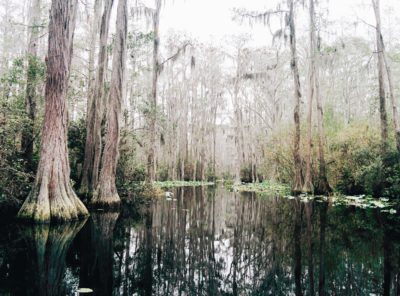The UF/IFAS Center for Public Issues Education makes impactful contributions to the agricultural and natural resource sectors on a regular basis. These contributions are made through researchers’ commitment to social science inquiry and understanding public perceptions on important issues related to agriculture and natural resources. Learn more about the impact the PIE Center’s research and educational programs are having on Florida in our most recent Impact Report.
When two agricultural and natural resources organizations wanted to learn more about their audiences in order to better address their audiences’ needs, they knew just where to go: the UF/IFAS Center for Public Issues Education (PIE Center).
Don’t Pack a Pest is a program that educates travelers of the risks associated with bringing undeclared agricultural items into the U.S. and neighboring Caribbean countries. The program is a partnership with FDACS, the U.S. Department of Agriculture, and the U.S. Customs and Border Protection. One main program component is a website that assists travelers in determining whether certain agricultural items are allowed or prohibited entry into the U.S.
In 2014, the Don’t Pack a Pest program redesigned its website to make the features and information more user-friendly.
“We wanted to initiate research into our program to determine the effectiveness of the website, and the PIE Center seemed like the perfect fit,” said FDACS Division of Plant Industry public information director Denise Feiber.
FDACS asked the PIE Center to develop surveys to determine if the site was providing useful information. Surveys were conducted in Florida (500 participants), the United States (1,000 participants), and the Caribbean (Puerto Rico in Spanish, Jamaica and the U.S. Virgin Islands in English).
“Where appropriate, enhancements were made to the website based on survey results,” Feiber said.
PIE Center associate director and associate professor of agricultural education and communication Alexa Lamm led the research for the Don’t Pack a Pest program.
“Helping FDACS keep the natural resources and agricultural industry of our state and nation safe by communicating as effectively as possible with those potentially carrying items of concern was our top priority,” Lamm said.
The PIE Center also provided the program with information it could then share with its partners about how valuable the program is in protecting Florida and the United States against the introduction of harmful pests and diseases.
“The Caribbean is a major threat to the introduction of invasive pests and diseases in the United States, and we want to ensure we are communicating to this audience in an effective way,” Feiber said.
Through the information provided by the PIE Center, Don’t Pack a Pest can also demonstrate value to organizations that financially support the program.
“It is also important that we demonstrate to our funding source, the USDA, that we are effectively using research to accomplish program goals – and again this supports the value gained from partnering with the PIE Center,” Feiber said.
Overall, the PIE Center has been able to work with the Don’t Pack a Pest program to offer recommendations on how to better reach audiences more effectively through outreach and communication.
“The consultation and collaboration with the PIE Center has been a valuable program tool, and we highly value the input Alexa and the PIE Center have provided,” Feiber said.
As leaders in Florida work to ensure the conservation of the state’s precious resources, the PIE Center is proving to be an invaluable asset. This value is evident through the PIE Center’s partnership with Florida Department of Agriculture and Consumer Services’ Don’t Pack a Pest program, as well as its partnership with the Florida Fish and Wildlife Conservation Commission.
To learn more about the PIE Center’s partnership with the FWC Turkey Management Program, download the full impact report.
Download the Winter 2017 Impact Report

















